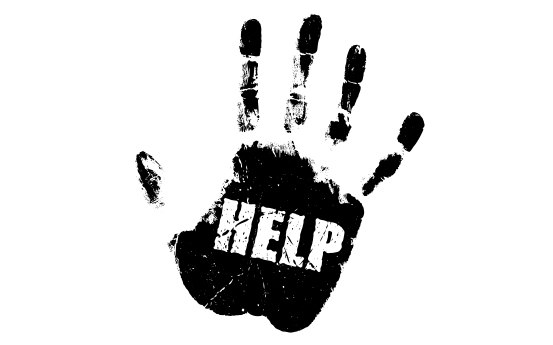Last weekend I was awakened by the sound of the phone ringing. It was my sister-in-law, giving me a play-by-play of the first distance-learning week of the new school year. I could tell from her voice that she was overwhelmed with the process of balancing work Zoom meetings, connecting my niece, Nia, to her school’s digital learning platform, and generally keeping the household afloat. I quickly asked, “How can I help?”
Asking for help should always be acceptable. But asking for help in the middle of a pandemic — when so many of us are blending our careers with a teaching job we didn’t sign up for —is not just acceptable; it’s a necessity. As I jumped into action to ease her anxiety over Nia’s new education technology, I could sense the stress and feelings of helplessness lift from her voice. It was as if she suddenly realized, “I am not alone in this.”
Later that evening, I dropped off some salad and pizza so she could have some “Mommy Time” to herself. Seeing her immediate relief made me ponder: “Why is it so hard to ask for help?” I took a good look at my own life and realized that I held assumptions that dictated when it was OK for me to ask for help: I don’t want to be seen as a burden to someone. I don’t want to lose control. I don’t want people to think I can’t handle my responsibilities. I don’t want my request for help to be perceived as a sign of weakness. I took a deep breath and decided it was time to cast aside those assumptions. I chose to embrace my vulnerability and admit to myself that I cannot do everything alone. In fact, I’m not supposed to. (This is what friends and family are for!) Sitting in this new consciousness, I felt like a weight had lifted.
Here are some lessons I’ve learned about asking for help:
- You are still strong. Asking for help doesn’t make you weak. Getting a little support doesn’t mean you are not independent. Borrowing wisdom or advice from someone else doesn’t mean you can’t handle the challenges of the world. It simply means that you are strong enough to recognize that you may need some extra support to maneuver through a challenge or season in life.
- Strength comes from vulnerability. Being able to step outside of your shell, your pride, and your fear to say, “Please help me,” empowers you to release old beliefs and disappointments so they no longer weigh you down.
- No man — or woman — is an island. The world was created in such a way that we need and rely upon one another. As humans, we are meant to lean on each other, and we should honor the need for that connection.
- You will pay it forward if you haven’t already. View your ability to ask for help as a way to empower someone else when they are in need. And remember that it can be challenging for someone to admit when they are overwhelmed, so you may need to step in and offer to be their support partner. Give your support to others generously, and you will see a bountiful return.
- You are loved. We are all appreciated and cared for more than we realize. Despite the deep divisions reported on the news, we share more commonalities than differences. We all want to feel needed. We want to share wisdom and offer assistance. And we want to do this without feeling like we are overstepping boundaries.
In conclusion, its okay to surrender the flag of strength and throw away old assumptions that associate pride with strength and independence. We are not always at our pique when we are constantly fending for ourselves or standing alone. True strength rarely comes from the isolated capabilities of your brain or body. True strength comes from knowing your needs and limitations and loving yourself enough to say, “Please help me.”

